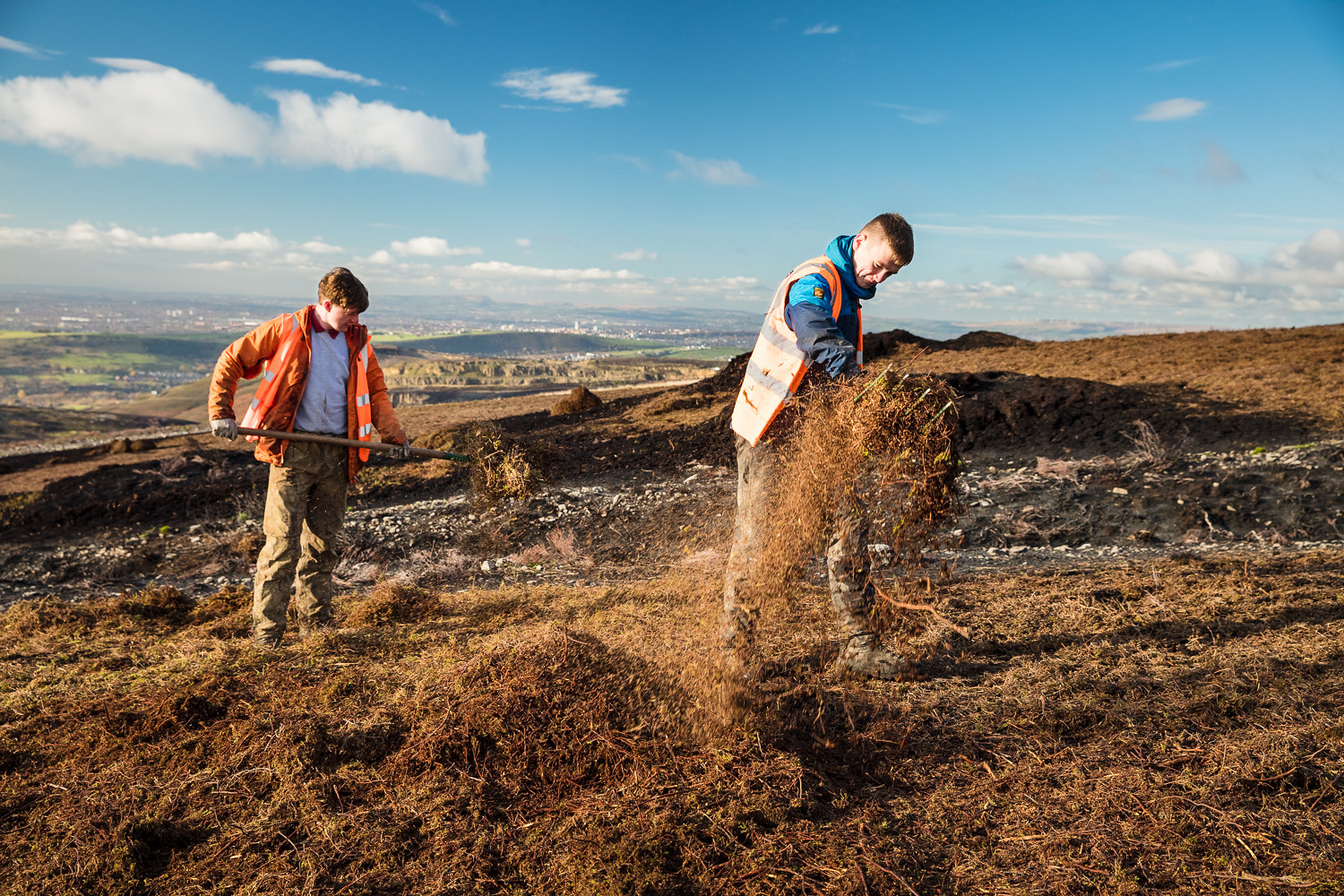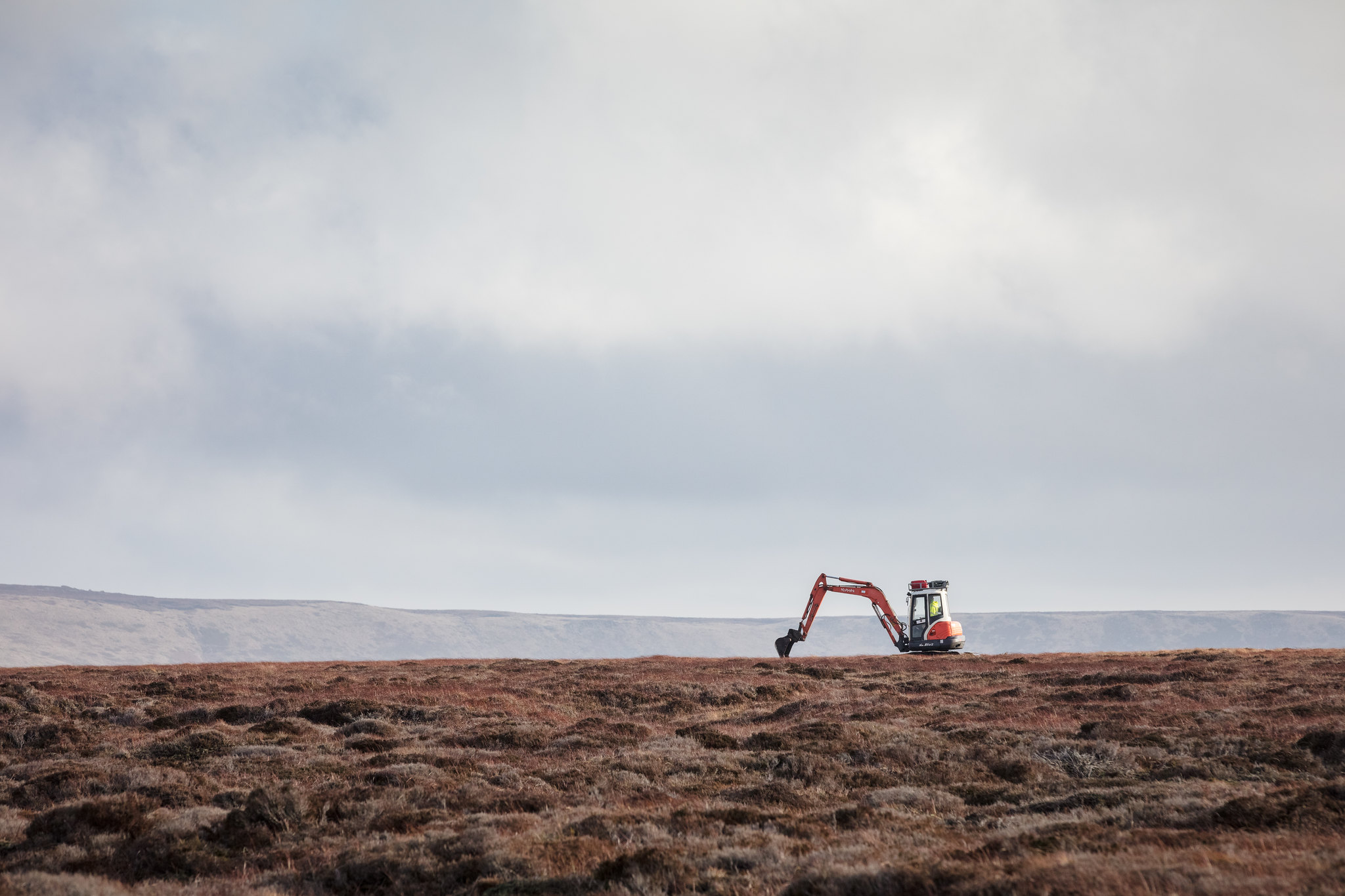Moors for the Future Partnership, who for the past 17 years has been working to restore the peatlands of the Peak District and South Pennine moors, has been selected to receive funding in a pilot scheme to encourage sustainable private sector investment in our natural environment.
Defra, the Environment Agency (EA), Esmée Fairbairn Foundation (EFF) and Triodos Bank UK have formed a collaboration to support environmental projects to create sustainable funding models.
Having been sourced and evaluated by Triodos Bank UK the project will receive grant funding from Defra, the EA and EFF to support their development, complete business plans to attract private sector investment, and deliver long-term environmental benefits and sustainable financial returns.

Emma Howard Boyd, Chair of the Environment Agency, said:
“In England we are increasingly seeing new extremes weather accelerate from wettest to driest and back again, restoring nature is key to managing this.
“You can’t put a price on nature, but investing in its recovery can generate a steady return and will make the UK economy more clean and resilient. These projects are designed to attract investment into local economies while developing models for businesses to use and scale up around the world.”
Environment Minister Rebecca Pow said:
“The UK is taking a leading global role in tackling climate change and biodiversity loss, but given the scale of the challenge ahead it is crucial that environmental projects have the tools they need to attract private sector investment alongside our government support.
“Ensuring we have a green recovery from coronavirus will be especially important at this time, and this collaboration provides vital financial expertise and support to create funding models which can be used by other projects up and down the country.”

The government’s 25 Year Environment Plan made clear that while the public sector will continue to be an important source of funding for the natural environment, it is critical that this is alongside more private sector investment to protect and enhance our environment.
That is why the government committed £10m in the Budget to support natural environment projects to attract private sector investment through the Natural Environment Impact Fund, from 2021.
The government and the Environment Agency are also working to ensure that our recovery from coronavirus is clean and resilient, tackling climate change and boosting nature.
In order to help project developers up and down the country attract investment, the lessons learned from these projects will also be made freely available.

Caroline Mason, Chief Executive of Esmée Fairbairn Foundation, said:
“We need bold action and impact like never before when it comes to protecting our natural world. If the current crisis is to be successfully reversed, more money will be crucial. With these grants we hope to explore both the potential and the limits for generating revenue to deliver environmental outcomes. If we understand the models that can make money and can be funded through private capital, we can raise additional money for nature and make sure that public and philanthropic funding goes where it’s most needed.”
Dr Bevis Watts, Chief Executive of Triodos Bank UK, said:
“We have invested over two years of our resources and expertise into finding viable financial projects in this new area and were delighted to bring these partners together. We believe that connecting economic outcomes to investment in environmental restoration is possible and can deliver benefits, in terms of carbon storage, air quality, flood management and human health, as well as enhancing biodiversity and wildlife habitats.
“Triodos has always been a pioneer in sustainable finance, for example in early renewable energy and organic food & farming. Now linking the economic and societal benefits we take for granted from nature to investment in its restoration is a key challenge we are leading on. The finance sector needs to play its role and use more imagination in how economic outcomes can be linked to investment in nature. We hope we can build on these pilot projects and replicate them to secure further investment in addressing the environmental crises we face.”
Peatland restoration in the Pennines
Peatlands have a vital part to play in tackling climate change, storing more carbon than all other types of vegetation in the world combined, and damage to peatlands is a major source of carbon emissions.
The peatlands of the south and west Pennines are some of the most degraded in uplands in Europe, and as well as being damaged in the past by the coal-fired industry in Manchester and Sheffield, they are facing future pressure from hot summers and wet winters due to climate change.
Moors for the Future Partnership is already working to restore and conserve peatland in the area, but needs to attract greater investment in order to carry out this work on a larger scales to protect more of this vital habitat.
It is hoped this project will be successful in developing a range of returns, including financial, for investors.
The partnership has been operating for 17 years and has transformed huge areas of bare and eroding peat. As these peatlands are at the forefront of the effects of climate change, there is an urgent need for restoration to continue so that we can deliver full ecosystem service returns.
This pilot is a natural successor to the landscape-scale work that has already been achieved and will allow the partnership to pioneer the development of the next generation of sustainable financing for vital peatland conservation work.”Christopher Dean, Head of Programme Delivery from the Moors for the Future Partnership
Moors for the Future Partnership has ongoing works with the Environment Agency in the Greater Manchester, Merseyside and Cheshire catchment, including moorland restoration on Saddleworth Moor and the hills above Stalybridge.
Lee Rawlinson, Environment Agency Area Director for Greater Manchester, Merseyside and Cheshire said:
“When it comes to enhancing our environment, a collaborative, partnership approach is vital in restoring nature at scale, reducing emissions and responding to the climate emergency. We are delighted to once again be working side by side with Moors for the Future to deliver a legacy of peatland projects across the Pennines that will bring multiple benefits for future generations.
“Over the years, there has been some fantastic work completed in partnership with Moors for the Future across catchments in the Pennines, including those around Glossop and Longendale, to restore degraded peatland. But, to achieve the ambition we all have for Greater Manchester, in the face of the climate emergency, a scaled-up approach is essential. Nature-based projects such as these, that have the potential to improve our natural capital while delivering wider health and well-being benefits across huge areas of our local peatland, are always exciting to be a part of.”